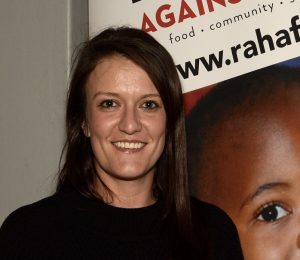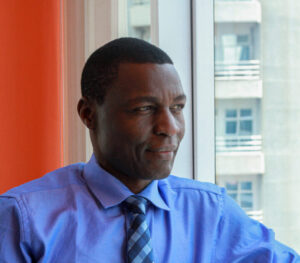Press release
Both long and short-term interventions are needed to tackle SA’s growing food crisis, says Momentum Metropolitan’s Tshego Bokaba and Rise Against Hunger’s Nadine Sandrock.
The matter of food insecurity in Africa has been well-documented, through numerous articles, dedicated studies and visceral visuals, such as Kevin Carter’s ‘The Vulture and the Little Girl’ (1993), a controversial photograph of an emaciated child in Northeast Africa, who had collapsed on the way to a United Nations feeding centre while a vulture hovered nearby.
Yet has this shocking evidence done much to improve Africa’s food crisis? In 2020, an estimated one in five people in Africa faced hunger; more than double the portion of any other region around the world. The year of the pandemic also saw a 46 million jump from the previous year in terms of the total number of people across the continent who were undernourished.

Food security is defined as having reliable, uninterrupted access to a sufficient quantity of affordable, safe, nutritious food. “Despite having a generally robust food supply chain, which is not always common in developing countries, South Africa still faces food insecurity,” says Nadine Sandrock (above), National Fundraiser and Marketing Coordinator at Rise Against Hunger, a non-profit organisation (NPO) that co-ordinates the packaging and distribution of food to insecure communities.
In 2020, almost 24% of South Africans were affected by ‘moderate to severe’ food insecurity while just shy of 15% were impacted by ‘severe’ food insecurity, according to Statistics South Africa.
Worldwide, rising global hunger has been attributed to what has been dubbed the ‘Triple C’ effect: climate change, conflict and Covid-19. “While the pandemic played a significant role in rising food insecurity in SA, the Russia-Ukraine conflict, skyrocketing inflation and the increase in fuel costs have all compounded the problem,” says Sandrock.
The July 2021 civil unrest also contributed to disrupting food supply chains, while the flooding in KwaZulu-Natal and droughts around the country, specifically in the Eastern Cape, have all affected SA’s macro and micro economies, says Sandrock. “Before Covid-19, 12 million people were found to be food insecure in SA. This number has since climbed significantly, and we’re also seeing a rise in the prevalence of conditions related to malnutrition, such as stunting in children.”
So what can be done? Suggests Stats SA’s report: “As an alternative to buying food, households can produce their own food,” stating that there was a notable increase in the proportion of households engaged in agricultural activities in 2020.
However, inefficient farming methods and a lack of education have only compounded the problem of rising food insecurity across the continent. This is where we need public and private sector to come together, and implement new initiatives to encourage upskilling in sustainable farming methods, says Tshego Bokaba, (below) CSI Manager at Momentum Metropolitan.

Momentum Metropolitan’s ‘Women in Farming’ programme, in partnership with Agri Enterprises, is one such example. “This three-year incubator aims to enhance the skills of black female farmers, empowering them to better feed their communities.
“The programme is designed to instil capacity-building and business skills, which helps to develop these women-owned enterprises into sustainable businesses,” Bokaba adds.
At the end of the incubation programme, the participants are invited to become part of the Pietermaritzburg Agri network, qualifying as contracted traders. “Participants are strategically exposed to market access opportunities, enabling them to grow their enterprises, which bolsters food security, health and sustainability within that particular community,” she explains.
While programmes such as these address the matter of food security over the long term, Bokaba says that immediate interventions are simultaneously needed, as hunger impacts just about every aspect of a country’s socio-economic development. “Consider Maslow’s Hierarchy of Needs: while the Momentum Metropolitan Foundation is primarily concerned with youth employment, we cannot even begin to tackle this problem if we, as a country, haven’t yet dealt with something as critical to our survival as hunger.”
To this end, around 7500 meals will be packed by Momentum Metropolitan employees through the company’s Staff Volunteer Programme for Rise Against Hunger, and donated to Early Childhood Development centres. The meals are highly nutritious and comprise rice, soya, dehydrated vegetable mix and a fortification pack of 23 essential minerals and vitamins specifically formulated to combat malnutrition, in compliance with the United Nations Children’s Fund (UNICEF) guidelines.
“As food security rises across the country and continent, we needed targeted long and short-term interventions that will address these problems, while promoting the sustainability and self-sufficiency of our communities,” concludes Bokaba.
.
Relevant Agribook pages include “Food security” and “Emerging farmer support“.



